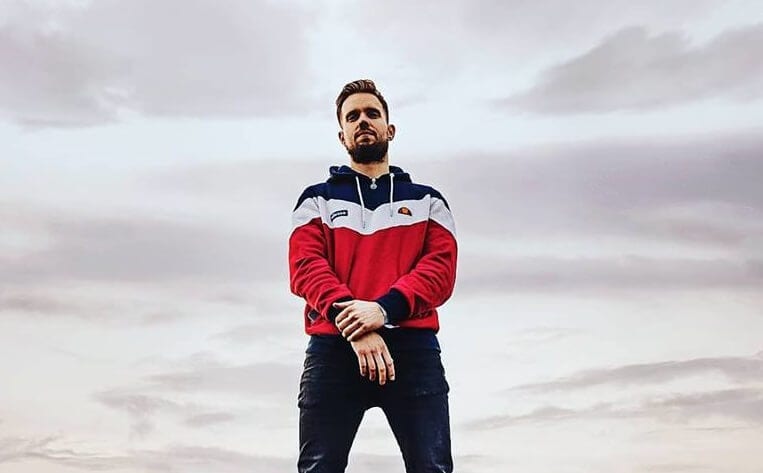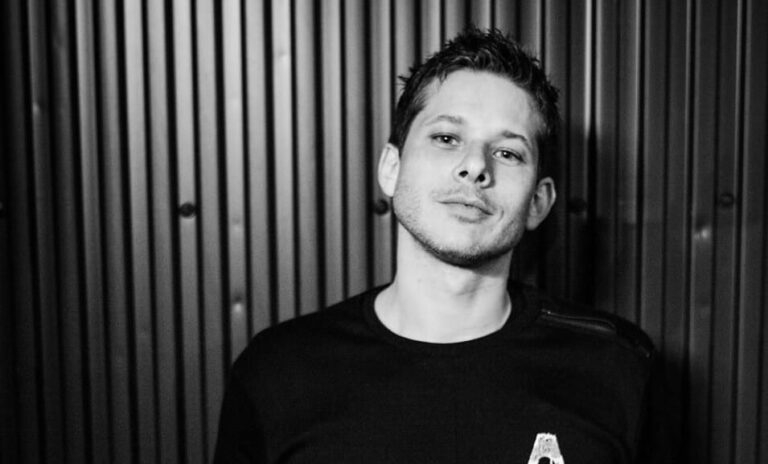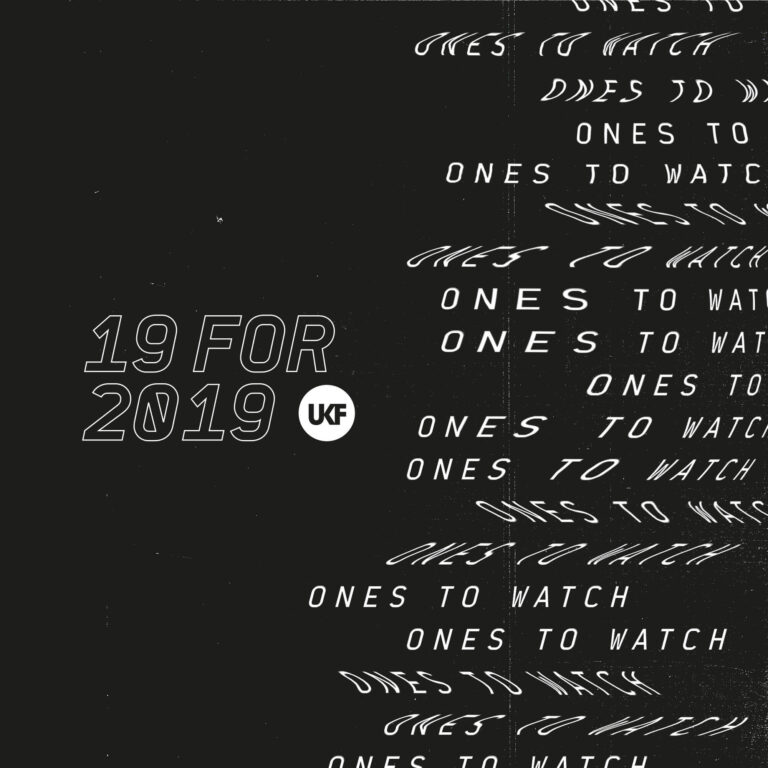Photography: Elya
Not all artists choose the limelight of international stages. Sticking to a rigorous studio routine – and honing the tools that turn and bop heads on an international scale – proves to be more alluring and satisfying to some. As with all things, there’s a price. But it’s one that ReauBeau (Rob Jager) is gladly willing to pay, in exchange for lasting recognition and acclaim.
Through initially messing around with punk rock, hip hop and dubstep, ReauBeau covered a wide area of ground throughout his career as a musician. His most recent outings received recognition by established brands and labels like Tomorrowland, Trap City, Spinnin’ Records and MA Music. ReauBeau’s music can be described as an emotionally rich multi-genre imagining of future bass and trap, coupled with influences still true to his roots (and lots more).
With more than a dozen projects planned for 2019, ReauBeau picking up momentum and bound to make vastly huge waves on multiple fronts. Lets dig deeper into the mind of Reaubeau and unearth the hows, whats, whens and whys.
How are you doing these days?
I’m very busy, but that’s good! I’ve just finished a mix for Benzi, he’s a resident at Diplo & Friends. Wrapping up a Flume flip at the moment, one of my favourite songs of his; On Top. And I’m doing a lot of music for advertising.
What got you into advertising?
Mainly to survive in music. I don’t want to have a side-job, I just want to make music. Been doing it for two years now. It’s going well, but you have to get used to it.
What are the challenges?
The most important thing is to get a structure. I work out every morning. That’s how I start and then I go to the studio and have either a session or stuff I want to do for myself. If I have a commercial job, the deadlines are one or two days, so you have to work real fast.
Some might remember your previous alias Robokop… There’s still a resemblance between both aliases, partially because you are called Rob perhaps. Is this somewhat a matter of still wanting to be recognized through that? What are your thoughts?
Initially I thought about keeping the name, but then I decided that I don’t want to be doing the same thing and prefer to totally switch it up. You can still hear some influences of that sound in my tracks. For example, the track Freedom (on CTRL EP), which has more of an old Circus Records vibe to it. But I want to experiment more these days and find new ways to make accessible music.
Having your roots partially in the heavier dubstep, how did that help you in regard to your skillset when making this music?
Mainly with experimenting. Hearing dubstep and drum ‘n bass, it’s a lot about technique, experimenting and resampling; essentially trying new stuff and making weird sounds. You get a lot of knowledge of producing by doing that, It helped me a lot.
Recently, you’ve been working more with vocalists. What made you decide to go in that direction?
I want people to cry (laughs). I’ve got some vocals when I started ReauBeau and it worked pretty well. Partially I like working with vocals, because I used to be a singer in a punk band about fifteen years ago and I wanted to write my own songs with a vocalist. 95% of the songs I release with vocals on top are co-written.
Looking back on 2018, what are the highlights?
My mix for Annie Nightingale was really exciting. Also, doing music for a Volkswagen commercial was pretty sick.
In terms of gigs, is that something you are focussing on currently?
I played at ADE last year, but I wasn’t feeling my best and had to find my sound again for playing out. I haven’t done a lot of gigs, but I don’t mind. I just want to make a lot of music. I have another side-project called Dowork, which is more in the direction of lo-fi hip hop. I used to do a lot of hip hop and I wanted to do that again.
Are you willing to do more gigs during this year?
Definitely, but I want to do bigger shows. There are some things in the making internationally, but can’t really tell much about it yet.
Could you tell more about the upcoming EP CTRL (on Riotville Records)?
I wasn’t actually planning on doing the EP, but then I had about 30 songs which I made in the last couple of months, as I was going through a rough period in my life. Short version: breakup, feeling like shit, emotional feely feely. So I made a lot of songs about that, making it positive by trying to get past the whole ‘feeling like shit’ part. Afterwards we picked out seven tracks that for me would fit on the EP.
Is it somewhat of a closing chapter for that period in your life?
Well, actually it’s not. It was a chapter, I learned from it and that’s what I want to convey. A phase you learn from, become stronger by, and move on. It’s also been an experimental phase, now I know more on where I want to go as a person and musician.
In that case, is there a deeper meaning to the name of the EP?
Yeah, CTRL your attitude, fate and your life. Take control and responsibility of your life.
What do you look most forward to in 2019?
I have about sixteen songs to drop in 2019. Last year revolved around experimenting and making a lot of music. I still am in the studio almost every day.
Then how do you maintain a balance in life and zone out?
Well, while I’m doing crossfit five times a week, so then I get my social interactions with people (laughs). I also travel a lot, because I teach as well at Music Production Academy in Rotterdam.
I love to walk in the woods with a friend to zone out now and then, hikes are really good, road trips too. I like work trips as well, I have a couple of meetings planned in Berlin in January with clients, I go there and experience the city, while combining it with being creative.
What’s the most satisfying though about teaching others?
Getting them enthusiastic about music. Sometimes I’m in a writer’s block. You get these phases in music as a creative person. When you talk to young people who are really eager and say things like: ‘aw yeah, I want to get back to the studio and start making beats’, it works both ways.
Generally dealing with a writer’s block, how do you go about it? Do you just push through?
I do, because I have to as a professional. Sometimes I have to do commercial work and I wonder how the hell I’m going to do it. To make something you’ve never made in your life… (confused expression) – there’s like a feeling inside that holds you back; a thought saying ‘you can’t do this’, but you have to shrug it of and just work.
How do you shrug it off?
By starting and not thinking about it. Once the layers form, you get into it.
In regards to teaching, what are some take-away tips for aspiring producers which are often overlooked, but essential?
Be reliable, that’s number one. Back in the days, I worked with some producers (don’t want to mention names) and they weren’t the most reliable people in the world. People tell me: you’ve got the clients for 50% on your side by being reliable.
In terms of approaching labels and in a sense tailoring your music to their repertoire, how does one approach that?
Hard to say… Guess I’m difficult in that regard (laughs). I try to keep my own sound and it isn’t always easy. Sometimes a label doesn’t like your sound or the direction where you’re going. When you have your first signing at a big label, and then the other labels are like: ‘oh, we can actually sign this’. I prefer to stick to my own sound, combining it with influences from other people. But yeah, of course you also get inspired by the things you hear.
So it’s not about copying, but staying true to your own expressions?
Well, certainly, you always take certain elements from other artists. I get inspired by the likes of Flume or Ganz, but also classical music or jazz, whatever. If I really want technical shit, then I listen to Noisia and I’m like ‘aww damn, $#)& you’ (laughs). People who are interested should read the book ‘Steal like an artist’. It really sounds like you’re stealing, but it’s really interesting, because everything you hear has been made through fusing other genres. You blend styles and then you make a new style out of the blend.
Then again, it’s not about copying people, but trying to find your own sound. Working together a lot with people is essential too. Also, have fun. When working that much I sometimes forget about, but it’s important!
From a practical perspective, how do you go about starting a song?
It really depends. Sometimes I start with the cord progressions, begin with a sound on my keyboard, or start with my Moog by playing around and then recording something. After that I put it in Ableton and play around with it by resampling, reversing, cutting and then replaying it. Just messing around. My best songs are born from giving myself the permission to go into the studio and play around.
You’ve said you listen to different genres. Are you still able to not analyse when you’re listening?
Yeah, sure. Actually, I read a lot too. So when I’m reading, I listen to lo-fi or instrumental hip hop, or classical music/jazz. I put the volume really low, so there’s still some music going on.
Are there any goals for the longer term you would like to share?
I want make music for the next 40 years, so I’m working on a plan.
What kind(s) of music would you like to make?
Productions for movies, but also timeless classics, as well as compositions which an orchestra would play.
Play with Reaubeau: Facebook / Soundcloud / Twitter


